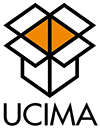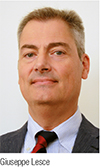Reflections on the sector
 We asked Giuseppe Lesce, president of Ucima, to discuss the state of the Italian automatic machinery market, providing a view from the sector association’s privileged position, in order to help us understand the reasons for success and challenges that a sector must face. Data, facts and perspectives. S.L.
We asked Giuseppe Lesce, president of Ucima, to discuss the state of the Italian automatic machinery market, providing a view from the sector association’s privileged position, in order to help us understand the reasons for success and challenges that a sector must face. Data, facts and perspectives. S.L.
 What has Italian industry today, and in particular the sector of automatic machine builders, inherited from the crisis of recent years?
What has Italian industry today, and in particular the sector of automatic machine builders, inherited from the crisis of recent years?
In recent years, many commentators, economists and industry representatives have analyzed the effects of the crisis on the Italian industrial system. Personally, I think the biggest lesson that these years have taught us is the awareness of living and working in a fluid world, one always in flux, with market and competition scenarios always changing.
This requires from concerns a greater attention to organizational and managerial flexibility, and the tension drives the search for new markets and customers to diversify an enterprise’s risk on an international scale.
This changed situation is intimately tied up with the need to catalyze a process of dimensional growth, in order to enable Italian SMEs to reach critical mass and better lead global markets. However, this very push toward internationalization causes two issues to emerge, relating both to the possibility of taking advantage of business opportunities abroad (exports) and the enhancement of a concern’s value chain, since it has now become impossible to avoid taking into consideration the global value chain. For small enterprises this is a problem, and risks becoming the problem: it’s no secret that, during these years of crisis, the small concerns in our sector, analogously to many others, are struggling and achieving less brilliant results, in spite of the excellence of their products.
It’s true that the domestic market did better in 2014 than expected, but that’s not enough if we want to look forward with confidence and continue to grow.
What do Italian concerns have to offer that makes them stand apart from international competitors?
First of all, it’s important to keep in mind that Italian packaging machine builders are global leaders, with a market share of close to 26%. In recent years we have progressively gained ground from competitors and, now more than ever, our concerns contend with the Germans for the top ranking. Such impressive results were made possible thanks to the technological sophistication of Italian concerns, both in terms of solutions, obtained always with one foot firmly on the pedal of research and development, and in terms of offer customization. To these two concepts, innovation and flexibility, Italian automatic machine builders have recently added a careful attention to post-sales assistance and replacement parts, enhancing the overall performance of their customers, as well as the productive efficiency of machinery.

What are the latest technological trends?
The evolution of this sector has followed (and often anticipated) that of the industries served.
Sustainability is now among the growth drivers of packaging, and we expect many leaps forward in the area of facilities’ energy efficiency, also in light of the regulatory protocols that are always an important matter for the packaging sector. Innovation will focus even more on the flexibility of use of a single machine, enhancing performance for handling delicate products, the efficiency of quality control systems and artificial vision systems for monitoring labeling and marking, as well as essential packaging parameters like hermetic seal, weight and volume.
But, in the immediate future, innovation will also be driven by the application of the concepts and procedures of Total Cost of Ownership (TCO) and Reliability Centered Maintenance (RCM); and also, by the design of ever increasingly compact, modular and multi-function machines, capable of interacting among themselves and with the rest of the facility, as well as the implementation of user-friendly technologies.
What do you forecast for 2015, in light of the devaluation of the euro and falling oil prices?
In the last ten years, excepting 2009, our sector has had constant growth. According to early data on 2014 collected by the Ucima research center, we set a new record: 6.2 billion euro (+3.3%), of which 5.1 billion from abroad. After so many years of constant growth, however, we are seeing a slight slowdown in orders in the main market regions. The outlook for the current year is thus cautious, also in consideration of the many socio-political upheavals and the slowdown of some important economies.
We hope that in this situation, the weakened euro can represent first of all an advantage over non-European competitors connected with the dollar; and secondly, given the equal conditions that exist between us and our German competitors, a stimulus for the users to finally opt four the Italians.
As I’ve done for some time, I recommend that operators in our sector pay close attention to “new markets”, Africa first and foremost.
What “association” means today
«Today, as in the past - Ucima president Giuseppe Lesce explains - entering into association means putting oneself at the service of the concerns of the sector, supporting them to develop both through professional services and common policies and strategic decisions. For this reason, since my election in 2010, I have worked together with the members of the Board of Directors in order to restore Ucima’s rightful role, among the concerns of the sector but also among industrial and institutional pillars, both in Italy and abroad».
And while the times have been very hard, during the last three years Ucima has started down a path of virtuous growth, which has shown excellent results, to the point that the number of association members has grown by 49. This is a very important number, especially because these are SMEs that have found a valid and credible point of reference in the association.
The path of Ucima
The association’s renewal began with the integration of its operations with another national sector association, Acimac (Association of Italian Manufacturers of Machines and Tools for Ceramics). Many technical, training, promotional and internationalization services were then implemented. Lesce states: «We have created a training center, SBS, which last year offered 60 training courses to more than 1,200 people, hailing from concerns of the sector and other capital goods sectors. The success of this and other services has been such that other Sistema Confindustria associations have asked to use them. We have also improved the analyses of our research center, which offers market studies with communication services and grant award assistance». Ucima has also organized many association work tables, valuable encounters that enable exchanges of experiences and assessments of the state of the sector to help confront common problems and needs.
International promotion operations
Ucima offers its associates a series of services to foster exports through greater knowledge of markets, thanks to detailed research, a direct contact with abroad through participation in fairs and symposia, a strengthening of contacts with customers through participation in fairs in Italy, incoming missions of foreign operators and general sector promotion.
Thanks to the work it has done in the last two years, Ucima has become the most important Italian organizer of collective participation at international sector fairs. Last year, the association coordinated the presence of Italian concerns at 10 fairs in as many countries: 112 concerns occupied a total surface area of 2000 square meters. This year we will be in Asia at Propak Vietnam, Propak Asia and China Pharm, in Africa at Propak East Africa, Propak West Africa, Djazagro, Afro Packaging and Pharmaconex, in North America at Pack Expo Las Vegas and Expo Pack Mexico, and in South America at Fispal Tecnologia.
The Ucima fair strategy
Among the central points of the association’s policy in recent years figures that of contributing to strengthening Italian sector fairs, supporting the so-called “vertical” fairs, those dedicated to a specific product sector, particularly food, beverage, pharma, cosmetics. For this reason, the association created the fair Food Pack, which was held alongside Cibus Tec in October 2014. Lesce explains «Cibus Tec is a historic event organized by Fiere di Parma, dedicated to food processing technologies. The supplement of Food Pack completed and revitalized it, with an excellent response from sector operators, exceeding every expectation. We will finalize similar deals in the coming months with other important Italian fairs focused on the other product sectors. The object of these operations is to enable concerns in the sector of automatic machinery to meet their international customers in Italy, so that they may discover not only the latest technological innovations, but also our culture of doing business for the benefit of our customer as well as our country».



















